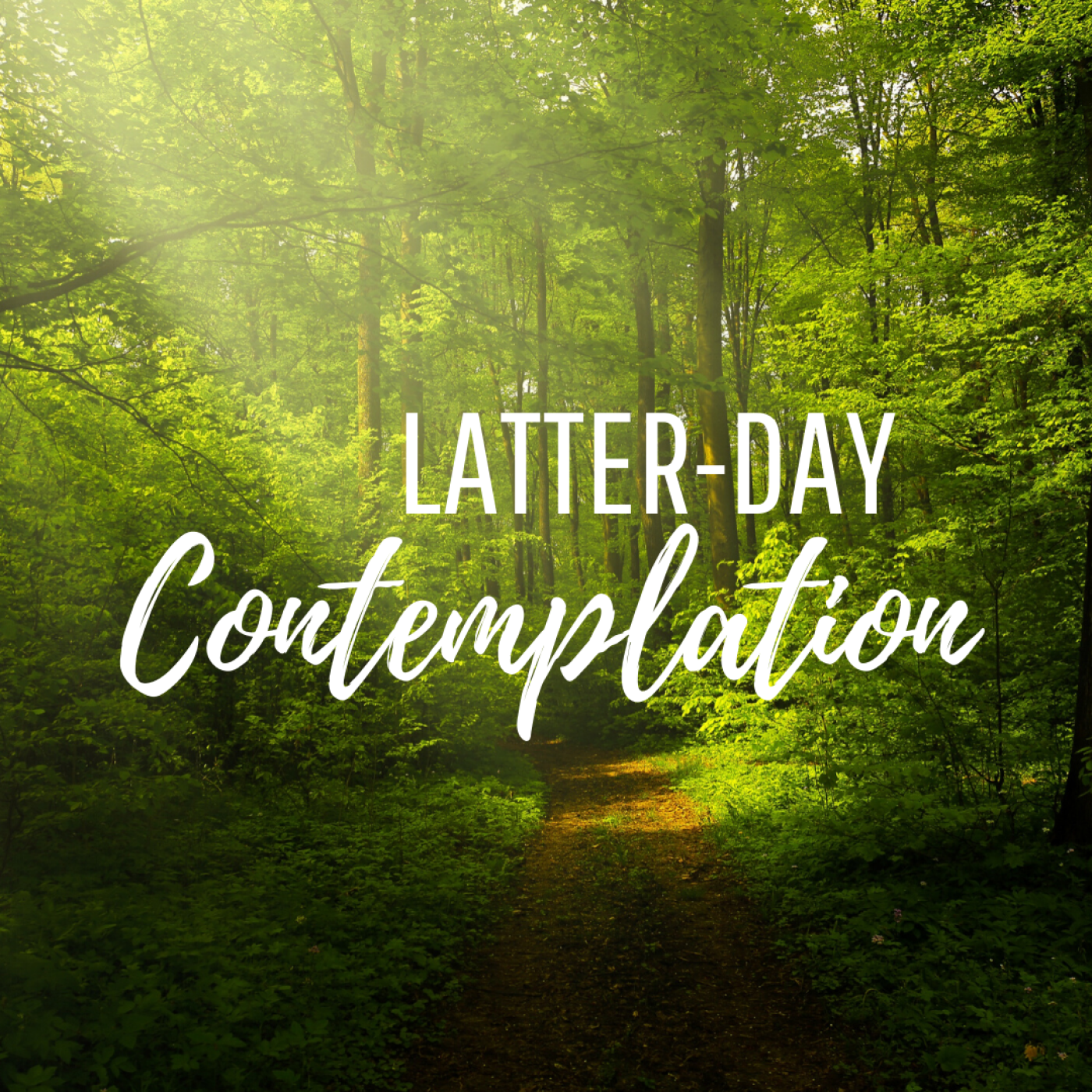-
Episode 85: Moses 7
Ben is joined by guest Dan Meehan in a discussion of Moses 7, the second half of the canonized "Book of Enoch". In his vision of the divine, Enoch sees a God who expresses emotion and feels sorrow. Enoch experiences the vastness of eternity and comes to know the bitterness of hell, as well as a fullness of joy. This chapter touches on some difficult themes that are often related to racism in scripture. What might these verses have meant to the early Saints and what can they mean to us today? Zion is taken up in process of time and Dan proposes an alternate interpretation of this concept that…
-
Episode 84: Genesis 5, Moses 6
Christopher and Ben return to the previous week’s reading to touch on some themes from the Garden of Eden: trees, cherubim, and the flaming sword. The genealogy put forward in Genesis 5 presents more questions than answers about ante-diluvian longevity. The Book of Enoch as recorded in our canonized Book of Moses is but one of many Books of Enoch that have come to light over the centuries. The narratives and themes it presents are both unique to the Latter-day Saint tradition and similar to other apocryphal texts. What pearls of meaning do we find in the story of Enoch, his travels, his calling as a prophet, and his sermon…
-
Episode 58: Stillness, Spirit, and Awareness
In this episode Riley and Christopher discuss the contemplative value of stillness. While we’ve referenced meditation multiple times, this means of approaching God in stillness offers us the opportunity to connect with the divine by quieting the sensory processes and becoming aware of autonomic processes such as breathing and heartbeat. So what are we to learn from this? Could it be that chasing answers all the time has become a distraction to communion and revelatory knowing, which is not always the same as propositional knowing?
-
Episode 83: Genesis 3-4 and Moses 4-5
In approaching Genesis 3-4 and Moses 4-5, Ben and Christopher continue their discussion of these creation and fall accounts as temple texts. We are to consider ourselves as Adam and Eve, recognizing our life in their experience in the Garden of Eden. Adam and Eve are created as ontological equals, as priest and priestess in the presence of God. What is a serpent doing in the Garden and why do our narratives equate the serpent with Satan? What can we learn from the differences between how Adam and Eve converse with God versus how Cain converses with God?
-
Episode 57: A Journey of Faith: Building Bridges of Trust and Reconciliation
In this episode Christopher and Riley are joined by Latter-day Peace Studies co-founder and former Latter-day Contemplation co-host Shiloh Logan to discuss his journey of faith. Shiloh’s family’s recent decision to resign from the Church of Jesus Christ of Latter-day Saints created an opportunity to explore faith transition and its relationship to religious identity from a personal perspective. Shiloh, Riley, and Christopher approach the subject both from the perspective of those who remain and of those who leave or resign from the Church. They discuss how we can continue to interact with one another with respect for individual spiritual autonomy and build bridges of healing and reconciliation when someone we…
-
Episode 56: A Contemplative Approach to the Old Testament
In this episode, after Christopher read a couple of dozen books on the Bible in a couple of weeks and recorded a three-hour introduction to the Old Testament on our sister podcast, LDPS Presents: Come, Follow Me with his co-host Ben Petersen, Christopher and Riley sat down to record this briefer conversation on the Old Testament. After touching on the complexities of authorship, canonization, translation, hermeneutics, exegesis, etcetera, Riley and Christopher set all of those complexities aside, take a deep breath, and go into contemplative reading of the Old Testament (or any other sacred text) through the Christian contemplative practice of Lectio Divina (Lat. “Divine Reading”) a traditional Christian monastic…
-
Episode 82: Genesis 1-2; Moses 2-3; Abraham 4-5
The Latter-day Saint tradition has canonized five different creation accounts. Despite intriguing differences, each of them can function liturgically—as does the temple account in temple worship. Christopher and Ben discuss all four creation accounts as descriptions of the dedication of the cosmos to God’s purposes rather than accounts of material origins. The teachings of the Prophet Joseph Smith and the manner of dedicating a temple in antiquity fit well with this understanding of creation accounts. In discussing these creation accounts, Ben and Christopher lay a foundation for a discussion of humanity’s place in the cosmos and God’s purposes for humanity in the next episode.
-
Episode 55: The Divine Feminine
In this episode Riley and Christopher welcome Dr. Jennifer Finlayson-Fife, “a licensed therapist who specializes in working with LDS couples on sexuality and relationship issues,” for a wide-ranging discussion of the Divine Feminine from an archetypal spiritual perspective. The discussion covers, among other things, the attributes of the Divine Feminine, their symbolic implications, the integration of the Divine Feminine, and its manifestation and significance in relationships.
-
Episode 80: Introduction to the Old Testament
themselves and their background for Old Testament studies. They cover where they're coming from, how they'll be approaching the Old Testament, and where they're going with their approach. This wide-ranging discussion deals with many of the questions on the minds of Latter-day Saints approaching the Old Testament such as: What is the Bible, or even scripture, in general, and the Old Testament in particular, and what do we do with them? How does revelation work? Who were the authors and what are the genres of the books that make up the library we call "the Bible" and what was the context and purpose of those authors in writing the texts?…
-
Episode 54: Perennialism
In this episode, Christopher and Riley discuss perennial wisdom and why we should study and incorporate the foreign, yet familiar, truths of all traditions into our own understanding and practice. Within the Church, we have a common misconception that the "fullness of the gospel" found in the "only true and living church" (D&C 1:30) gives us a claim to comprehensive, exclusive truth from God. As Riley and Christopher demonstrate, prophets ancient, modern, and contemporary have not seen things that way but instead have always actively encouraged Latter-day Saints to "seek ye out of the best books words of wisdom" (D&C 88:118) and have consistently recognized that God "bring[s] forth [His]…


